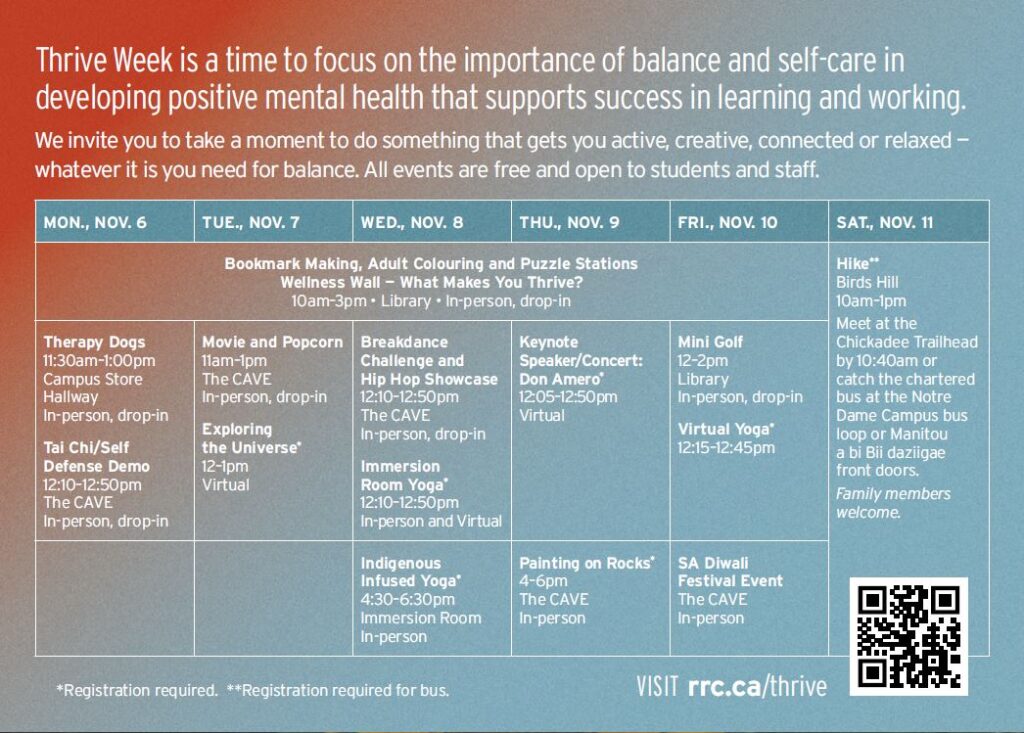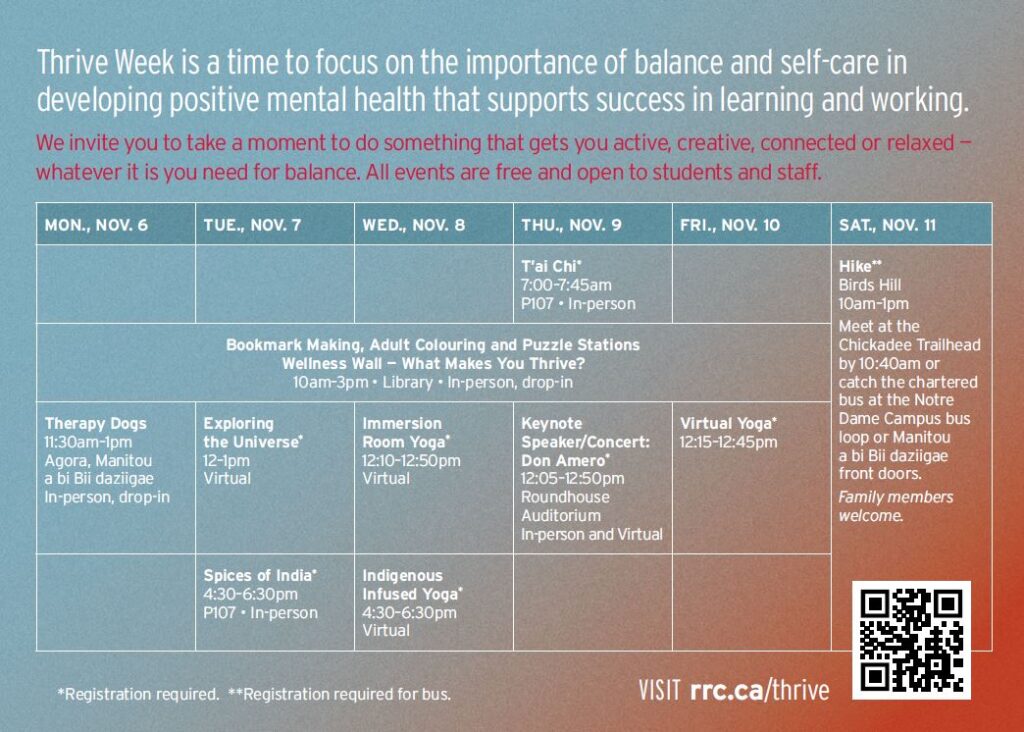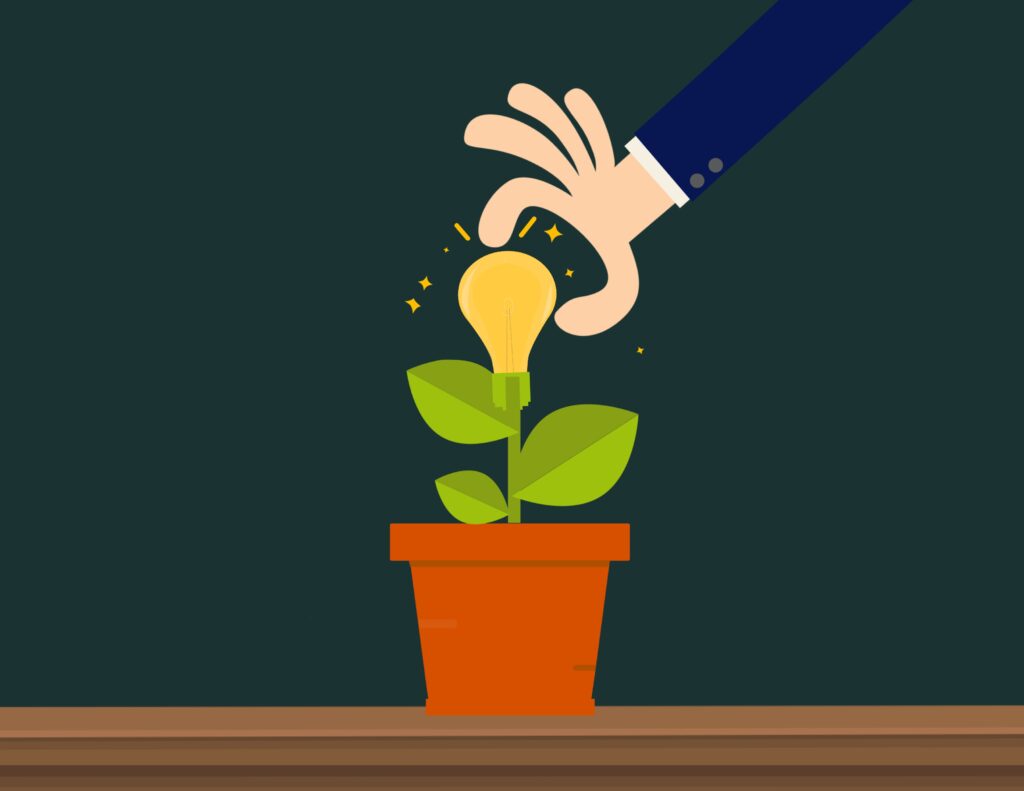Express Your Creativity During Thrive Week!

Take a Break and Express Creativity
The middle of the term can be a challenging and stressful time. The pressure of due dates can take a toll on your well-being. Amidst the chaos, express your creativity during Thrive week! This can be a powerful way to relieve your stress but also enhance academic performance!
The importance of Creative Expression
- Stress reduction: engaging in creative activities can serve as a welcome break from the intensity of midterm preparations, offering much-needed relaxation.
- Enhanced problem-solving: creativity can help you approach your studies with a fresh perspective, leading to innovative ways of tackling challenging subjects.
- Mood improvement: the act of creating, be it through art, music, or writing, can boost your mood. This can lead to a more positive mindset during stressful times.
- Cognitive boost: expressing creativity can stimulate cognitive processes, helping you think more critically and creatively in your academic work.
- Community and connection: creativity provides a platform for connection with like-minded people, offering a sense of community and support.
What Thrive Week is Offering
During Thrive Week (November 6-11) Campus Well-Being and the Students’ Association invite you to get creative. Consider creating a bookmark in the library, painting on some rocks, learning about the spiced of India or listening to singer-songwriter, Don Amero play some tunes and talk about his own journey to find creativity and well-being.
NDC Schedule

EDC Schedule

Other Creative Outlets to Consider
- Visual arts: take breaks from studying by sketching or painting to relax your mind.
- Music: play an instrument, create your own music, or simply listen to music.
- Writing: incorporate creative writing into your study breaks or keep a journal to express your thoughts and emotions.
- Crafting: try your hand at a crafting project or DIY activities to refocus your mind.
- Cooking and baking: experiment with new recipes and flavors in the kitchen as a form of culinary creativity.
- Photography: use your phone or a camera to capture things that inspire you to express your unique perspective on the world.
Tips to Consider When Approaching Creativity

- Schedule creative breaks: plan designated breaks for creative activities during your study session to maintain balance in your routine.
- Embrace imperfection: remember that the goal is not perfection but self-expression. Don’t be afraid to make mistakes in your creative endeavors.
- Find inspiration: seek inspiration from the things around you. Inspiration can come from unexpected sources.
- Experiment and learn: use your creative pursuits to explore new ways of thinking and learning!
Channeling your inner creativity during a stressful time is not just about creating; it’s about taking care of your well-being. Remember your creativity can serve as a powerful stress-relief tool. Being creative is a wonderful way to strike a balance between academic rigor and personal well-being, making your journey more manageable and rewarding.
Staying Creative After Thrive Week
Maintaining your mental health by connecting with your creative spirit can help you all year long. Be sure to sign up for the Campus Well-Being newsletter so that you receive invitations for future creative programs like pain nights, cooking classes and more.
